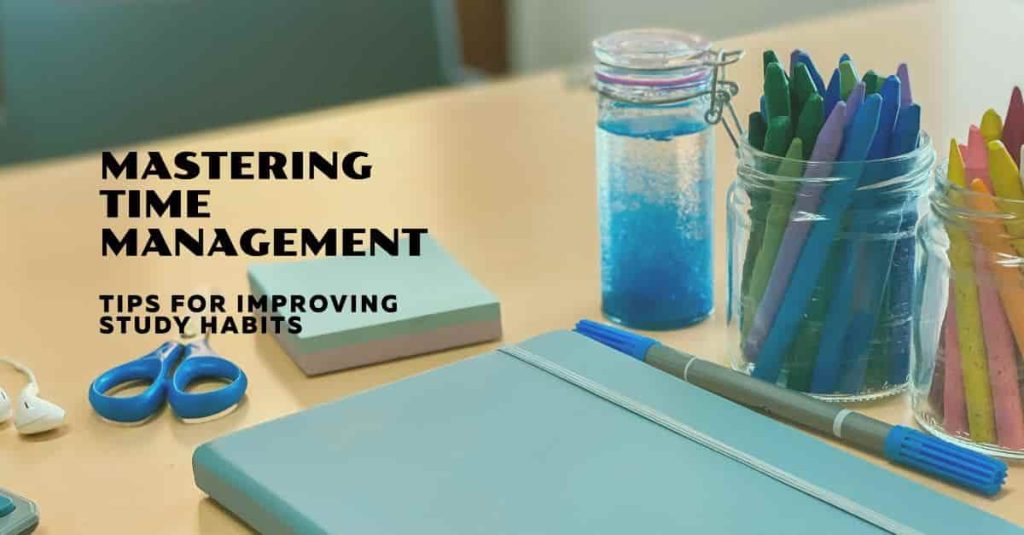
Promoting Healthy Study Habits and Time Management in Students at Valdymas College
In today’s academic environment, developing healthy study habits and effective time management skills is essential for student success. At Valdymas College of Advanced Studies, we are committed to equipping our students with the tools they need to manage their time effectively and establish productive study routines. This blog post will explore strategies for promoting healthy study habits and time management, highlighting how these practices are implemented at our institution. We will also reference relevant research to provide a comprehensive understanding of these critical skills.
The Importance of Healthy Study Habits and Time Management
Healthy study habits and effective time management are crucial for academic success and overall well-being. Research indicates that students who adopt good study practices and manage their time well are more likely to achieve higher academic performance and experience lower levels of stress (Zimmerman, 2002). Establishing these habits early in a student’s academic career can lead to long-term benefits, including improved academic outcomes and a more balanced lifestyle.
- Establishing a Structured Study Schedule
One of the fundamental aspects of effective time management is creating a structured study schedule. At Valdymas College, we encourage students to develop personalized study plans that allocate specific times for study, assignments, and other academic activities. Our academic advisors work closely with students to help them create schedules that fit their individual needs and responsibilities.
- Teaching Effective Study Techniques
Teaching students effective study techniques is essential for promoting healthy study habits. At Valdymas College, we offer workshops and resources on various study methods, such as active recall, spaced repetition, and effective note-taking. These techniques are designed to enhance learning and retention. By providing students with these tools, we help them develop study habits that lead to more efficient and effective learning.
- Encouraging Regular Breaks and Self-Care
Incorporating regular breaks and self-care into study routines is vital for maintaining productivity and preventing burnout. At Valdymas College, we emphasize the importance of taking breaks and engaging in self-care activities, such as exercise, healthy eating, and sufficient sleep. Our wellness programs and support services encourage students to balance their academic responsibilities with personal well-being.
- Utilizing Technology for Time Management
Technology can be a valuable tool for managing time and staying organized. At Valdymas College, we introduce students to various digital tools and apps that can help with scheduling, task management, and goal setting. Tools such as calendar apps, to-do lists, and time-tracking software can assist students in staying on top of their assignments and deadlines.
- Setting Realistic Goals and Priorities
Setting realistic goals and priorities is crucial for effective time management. At Valdymas College, we encourage students to set achievable academic goals and prioritize tasks based on their importance and deadlines. Our academic support services help students develop goal-setting strategies and provide guidance on how to manage competing demands. Research by Locke and Latham (2002) indicates that setting specific, challenging goals can lead to higher levels of performance and motivation.
- Providing Ongoing Support and Feedback
Ongoing support and feedback are essential for helping students develop and maintain healthy study habits. At Valdymas College, our faculty and academic advisors provide regular feedback on students’ progress and offer guidance on improving study habits and time management skills. This support helps students stay on track and make adjustments as needed.
Conclusion
Promoting healthy study habits and effective time management is a key priority at Valdymas College of Advanced Studies. By establishing structured study schedules, teaching effective study techniques, encouraging self-care, utilizing technology, setting realistic goals, and providing ongoing support, we aim to equip our students with the skills they need to succeed academically and maintain a balanced lifestyle. Through these strategies, we help students develop habits that will benefit them throughout their academic careers and beyond.
References
- Locke, Edwin A., & Latham, Gary P. (2002). Building a Practically Useful Theory of Goal Setting and Task Motivation: A 35-Year Odyssey. American Psychologist, 57(9), 705-717.
- Macan, Therese H., et al. (1990). College Students’ Time Management: Correlations with Academic Performance and Stress. Journal of Educational Psychology, 82(4), 760-768.
- O’Connor, Pat, & Pope, Marcia. (2010). Stress, Self-Care, and Academic Performance: Student Perspectives. Journal of College Student Development, 51(2), 231-244.
- Roediger, Henry L., & Butler, Andrew C. (2011). The Critical Role of Retrieval Practice in Long-Term Retention. Trends in Cognitive Sciences, 15(1), 20-27.
- Zimmerman, Barry J. (2002). Becoming a Self-Regulated Learner: Questions of Quality and Quantity. Contemporary Educational Psychology, 27(4), 373-380.



